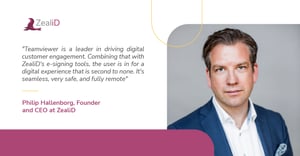Make anti-money laundering great again
If you follow the news, it was almost impossible for you to miss past year headlines on the Panama Papers. Documents relating to 214,488 offshore entities were leaked in 2015 by the law and corporate services firm, Mossack Fonseca. The leak uncovered numerous cases of fraud, tax evasion, and avoidance of international sanctions. A money-laundering scandal that couldn’t have been scripted more dramatically in Hollywood.
In the following years, the sophistication and sheer size of money laundering setups caught major finance players by surprise. Whether it be 30 billion USD suspected money laundering schemes at Danske Bank or the ousting of former Swedbank CEO Birgitte Bonnesen in the wake of money laundering woes - many banks are under regulatory and press scrutiny. In the case of Latvia, the whole banking system and thus the country’s whole reputation is on the line. The repercussions for society, investors and companies include loss of credibility, trust, brand and company value. Similar developments emerged in the i-gaming industry with e.g. the UK Gambling Commission fining major players millions of pounds for non-compliance.
The DNA of Money Laundering
At all stages of money laundering, but perhaps specifically in the first placement stage, identity verification is key. Whether it be a natural person fronting funds or natural persons being the beneficial owners of a business, concealing identity is a key motivation when trying to launder money, evade taxes, or avoid international sanctions. Arguably the two industries most vulnerable to money laundering are finance and i-gaming (gambling). There are strong and clear incentives for money launders to present false and fraudulent ID documents to disguise their true identity. And where there’s great motivation, there’s great risk and even greater potential for damage. A vicious cycle.
Fragmented ID concepts
For finance and i-gaming service providers being compliant is not necessarily easy. With most global countries lacking standardized and proliferated electronic means of identification, the world of AML compliance is one of paper, physical ID documents, and best case remote video ID verification based on a smartphone picture of a physical document. Not even basic concepts such as social security numbers are standardized. Does that sound bulletproof to you? Probably not.
And probably it isn’t.
Today’s world is a world of contradictions; all businesses scramble to be digital, but there are few infrastructures in place to support digital identification.
The key issue remains unsolved: how to create simple remote access to financial services for a natural person while allowing finance providers to meet compliance requirements on combating identity fraud.
A new recipe for success - our secret sauce
Whether it be for know your customer in finance or i-gaming, ZealiD has launched the first service of its kind to effectively combat identity fraud. The service solves identity verification to a eIDAS substantial level of assurance in remote relationships with a completely new and innovative toolbox. Our secret sauce is that we don’t rely on current verification standards. We offer remote identity verification that combats identity fraud effectively -- now and in the future.
The solution is a hybrid of open banking API authentication and data, advanced ID document machine analysis, machine liveness detection, and e-signature technology. Not only is the solution recognised as compliant in all EU member states for anti-money laundering identity verification purposes* but the solution also provides binding e-signatures. It sounds complicated. But it makes everything so much easier.
The future of combating fraud lies in electronic signatures and identities. Drop us a line and we will explain exactly how ZealiD is different -- and why it’s the most sustainable option on the market.
*=Present and New Product Launches (Q4 2019)



